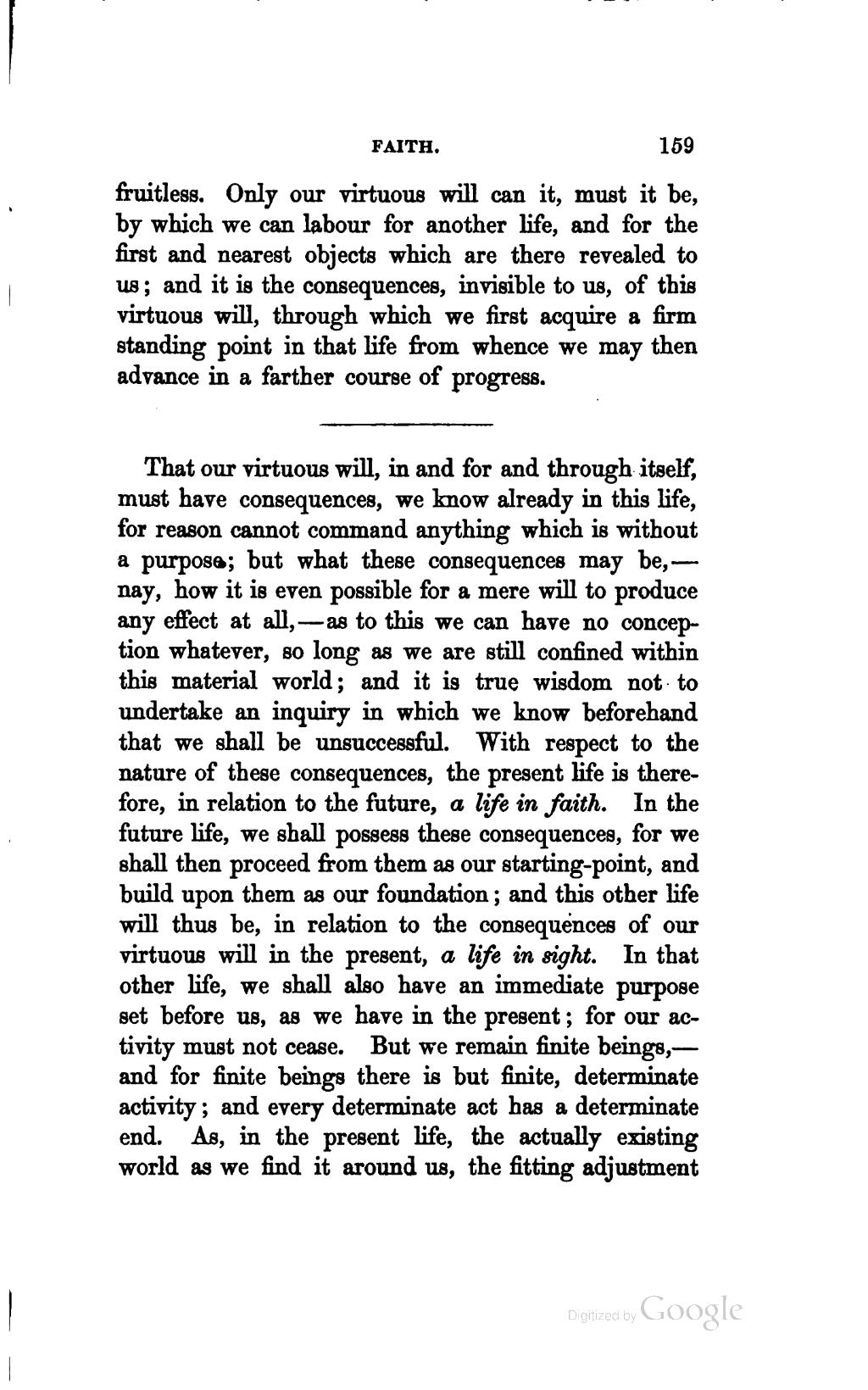fruitless. Only our virtuous will can it, must it be, by which we can labour for another life, and for the first and nearest objects which are there revealed to us; and it is the consequences, invisible to us, of this virtuous will, through which we first acquire a firm standing point in that life from whence we may then advance in a farther course of progress.
That our virtuous will, in and for and through itself, must have consequences, we know already in this life, for reason cannot command anything which is without a purpose; but what these consequences may be,—nay, how it is even possible for a mere will to produce any effect at all,—as to this we can have no conception whatever, so long as we are still confined within this material world; and it is true wisdom not to undertake an inquiry in which we know beforehand that we shall be unsuccessful. With respect to the nature of these consequences, the present life is therefore, in relation to the future, a life in faith. In the future life, we shall possess these consequences, for we shall then proceed from them as our starting-point, and build upon them as our foundation; and this other life will thus be, in relation to the consequences of our virtuous will in the present, a life in sight. In that other life, we shall also have an immediate purpose set before us, as we have in the present; for our activity must not cease. But we remain finite beings,—and for finite beings there is but finite, determinate activity; and every determinate act has a determinate end. As, in the present life, the actually existing world as we find it around us, the fitting adjustment
